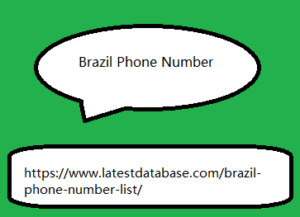Post by afifatabassum on Mar 11, 2024 2:01:38 GMT -5
After " Here comes everybody " in which he described the transformation of the media and the birth of the consumer/producer, Clay Shirky in the new " Cognitive Surplus " tries to urge the reader to make a social use of their cognitive surplus. Starting from the historical analysis of how the use of this "time of the liberated intellect" changes, from the gin drinkers of the 18th century to the couch potatoes of the television era, Shirky manages to throw an impressive fact in our faces: every year.
Americans they spend 200 billion hours Brazil Phone Number watching TV, while it took "only" 100 million hours to create Wikipedia, a useful resource for everyone. For the first time today, the interconnection between people, through the internet and specific platforms, allows us to treat free time as a shared global resource, which can be used to create new models of participation and sharing, for common purposes. Clearly it takes not just free time to push us towards social action, explains Shirky, but four fundamental elements: – Means: i.e. enabling technological platforms that make it inexpensive and simple to act collectively – Motivation: a driving force that can be intrinsic or extrinsic, and which often must also be stimulated with the right incentives.

Opportunities: new opportunities, for example for sharing which, in pre-internet era, they were unthinkable – Culture: i.e. a shared set of values and practices capable of regulating the activities of a community and the relationships between members Although less engaging than the first, reading Shirky's latest work, tinged with his usual optimism, is pleasant and stimulating. Once you finish the book, the immediate effect is to start asking yourself: how am I using my free time?
Americans they spend 200 billion hours Brazil Phone Number watching TV, while it took "only" 100 million hours to create Wikipedia, a useful resource for everyone. For the first time today, the interconnection between people, through the internet and specific platforms, allows us to treat free time as a shared global resource, which can be used to create new models of participation and sharing, for common purposes. Clearly it takes not just free time to push us towards social action, explains Shirky, but four fundamental elements: – Means: i.e. enabling technological platforms that make it inexpensive and simple to act collectively – Motivation: a driving force that can be intrinsic or extrinsic, and which often must also be stimulated with the right incentives.

Opportunities: new opportunities, for example for sharing which, in pre-internet era, they were unthinkable – Culture: i.e. a shared set of values and practices capable of regulating the activities of a community and the relationships between members Although less engaging than the first, reading Shirky's latest work, tinged with his usual optimism, is pleasant and stimulating. Once you finish the book, the immediate effect is to start asking yourself: how am I using my free time?
